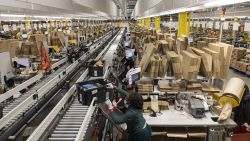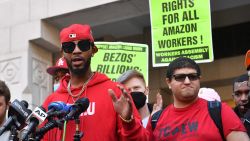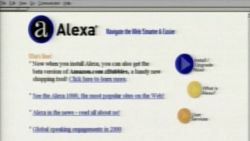Amazon’s search for a second headquarters was never just about finding a new home.
Throughout the process, Amazon skillfully obtained data from 238 cities and metro areas in North America for free, including proprietary information about real estate sites under development, details about their talent pool, local labor cost and what incentives cities and states were willing to cough up to bring the company to town.
“Amazon was not going through this exercise to pick a single HQ2,” said Richard Florida, a leading urbanist and professor at the University of Toronto. “It was part of a broader effort – a corporate relocation strategy – to crowdsource a wide variety of data.”
That’s consistent with how Amazon normally operates as a data-driven company, according to Michael Lenox, a strategy expert at the University of Virginia’s Darden School of Business.
“I think it was unique for the cities to be asked that level of detail,” he said.
This was especially true for the 20 cities on Amazon’s short list, which handed over even more information throughout the process beyond their initial proposals. For example, those cities submitted a comprehensive request for information (RFI) from Amazon following the company’s site visits, containing a multitude of detailed questions about talent, real estate, regulations and more.
Amazon itself has said it would use the information from the process when considering opening new facilities, such as warehouses and smaller corporate offices.
And that’s already happening. On Tuesday, the company announced that it would open an East Coast hub in Nashville, which was on the HQ2 short list. It will hire 5,000 workers for the facility, which will focus on customer fulfillment, transportation and supply chain activities. (The announcement came at the same time as Amazon’s HQ2 decision: New York’s Long Island City neighborhood and Virginia’s Arlington will split duty as its second headquarters.)
Even contenders not on the short list are already getting investments from Amazon. Since the HQ2 search started, Amazon has announced fulfillment centers in Spokane, Washington, and Ottawa, as well as a new office in Vancouver with jobs in fields like machine learning and cloud computing.
Amazon also could use the information obtained in the HQ2 process to better pinpoint where the best talent is located in the United States.
“At the heart of this is talent,” said UVA’s Lenox. “Having a better understanding of where talent may reside across the US is valuable to them. It may help with future recruiting.”
Data could also give Amazon an advantage in future negotiations with communities, especially if they know what incentives are available.
“Amazon can go back and say, ‘You barked up these incentives for HQ2. But what can you do for me now?’” University of Toronto’s Florida said.
However, there could be downsides. For example, cities may not be as willing to offer the same big incentives for a smaller facility and some proposed real estate sites may no longer be available in a few years.
Either way, Amazon walks away a winner. It has two new headquarters to call home, and a wealth of data on where to go next.

























